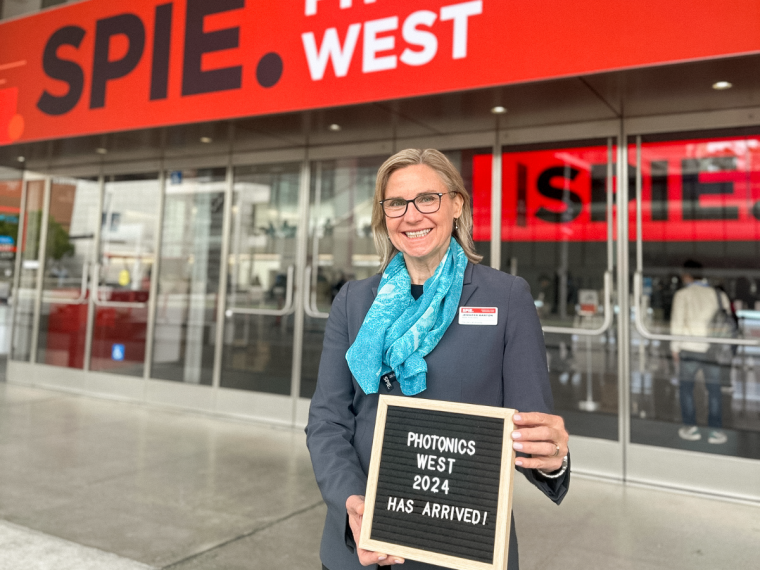As the BIO5 Institute director assumes her presidency of SPIE, the international society for optics and photonics in 2024, she propels the international society for optics and photonics into new frontiers and underscores her role as a leader in cutting-edge research and innovation while representing UArizona.

Jennifer Kehlet Barton, director of the BIO5 Institute, Thomas R. Brown Distinguished Professor of Biomedical Engineering, and professor of Optical Sciences at the University of Arizona, has officially commenced her role as the 2024 President of SPIE, the international society for optics and photonics. This pivotal appointment solidifies Barton’s standing as a trailblazer in her field and marks a significant milestone for the university.
Having initially been voted into the presidential chain by the Society’s members in 2021 as vice president, Barton’s elevation to the presidency underscores her exceptional leadership within SPIE, making her the seventh UArizona faculty member to hold this esteemed position.
Her commitment to advancing the frontiers of optics and photonics aligns with SPIE’s mission. SPIE partners with researchers, educators, and industry to advance light-based research and technologies for the betterment of the human condition. The Society, founded in 1955, connects and engages with its global constituency through industry-leading conferences and exhibitions, publications of conference proceedings, books, and journals in the SPIE Digital Library, and career-building opportunities.
Over the past five years, SPIE has contributed more than $24 million to the international optics community through its advocacy and support, including scholarships, educational resources, travel grants, endowed gifts, and public policy development.
Barton’s reflections on assuming the role: “The University of Arizona provided me the opportunity and resources to develop optical solutions for early disease detection, working with scientists and physicians. SPIE has brought that work to an international stage through conferences, publications, and broad networking. It’s my honor to contribute to both organizations.”
A leader in optical imaging, Barton is celebrated for her groundbreaking work developing miniature endoscopes that seamlessly integrate multiple optical imaging techniques. Notably, her contributions to optical coherence tomography and fluorescence spectroscopy have propelled advancements in understanding light-tissue interactions early detection of cancer.
Her innovative research also laid the groundwork for a groundbreaking therapeutic laser designed to address disorders of the skin’s blood vessels. Barton’s scholarly achievements are underscored by a prolific portfolio of over 120 peer-reviewed journal papers in these research areas.
Over the years, Barton has worked closely with Tech Launch Arizona, the unit of the university that commercializes inventions stemming from faculty, staff, and student research. She is an inventor on 5 issued U.S. patents and 5 active U.S. patent applications – a testament to her dedication to generating real-world impact from her research and innovation.
With a SPIE membership spanning more than 26 years, Barton has not only been a dedicated contributor but has also assumed diverse roles within the organization, including serving on its Board of Directors and various committees as well as chairing one of the Society’s biggest symposiums, BiOS. Her accolades within SPIE include the prestigious SPIE President’s Award in 2016 and being named a Fellow of the Society in 2008.
Barton joins a distinguished lineage of UArizona faculty who have served as president for SPIE, including William Wolfe, John Greivenkamp, Eustace Dereniak, Jack Gaskill, James Wyant, and Robert Shannon. This succession of accomplished leaders underscores the university’s enduring dedication to shaping the future of research in optics and photonics globally.
By Jessie Allen, BIO5 Institute
